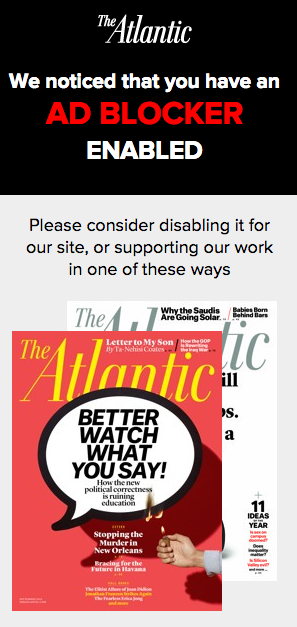Here’s Crystal, one upcoming content-blocking app, in action:
Soon, iPhone users will be able to block mobile ads the way they can on desktop with the help of add-ons like Adblock Plus. And publishers, who are seeing a boom in mobile traffic yet no corresponding boom in advertising revenue from mobile ads, have good reason to be concerned.
The arrival of content blocking on iOS 9 has been called a “potential nightmare for publishers” that will “hasten the death of online advertising.”
At the Monday Note today, ex-Apple executive Jean-Louis Gassée wrote:
The good news: We’ll soon have ways to streamline our browsing experience and avoid being pimped to advertisers.
The bad news: Marginally profitable Web sites, which is most of them, will lose advertising revenue and plunge into the red. The big guys that have paywalls in place, sites such as The New York Times, Financial Times, or Le Monde, will be much less vulnerable…
What are the smaller publishers to do?
He proposes some possibilities to what “life after content blocking” might look like, adding:
Too many sites are just echo chambers, they rewrite news releases, add strong adjectives and adverbs, and a bit of spin. Competition for attention, pageviews, and advertising dollars drives them to shout from the rooftops. If they don’t want to disappear or be rolled up into a larger entity to “optimize expenses”, they’ll have to get us to pay for their content.
Already, companies have been scrambling to find ways around the popular ad blockers in existence now, whether by blocking those ad blockers themselves, by reminding readers who use them that the content they read is supported by ads, or by trying to design ad models more palatable to consumers.
 “Ad-blockers are terrifying companies and publishers, but there’s no holding them back,” Patrick Kulp declared at Mashable today:
“Ad-blockers are terrifying companies and publishers, but there’s no holding them back,” Patrick Kulp declared at Mashable today:
It may be something of a vicious circle: Publishers are especially vulnerable to the threat of blocked ads because they are still grappling with how to make meaningful money from slippery online ads — even when they do shower them on readers. The cold reality is that readers tend to ignore most types of ads even without blockers.
Content blockers aren’t just a blow to publishers and their would-be advertisers. Important tracking tools publishers use to measure and understand their traffic, such as Parse.ly or Google Analytics, will also be blockable, as Owen Williams points out over at The Next Web:
Publishers like the New York Times, which rely on accurate traffic data to sell advertising may be acutely affected as visitor numbers appear to drop in number, when in reality they’re largely remaining the same.
Blocking advertising has clear benefits for users, but the marketing tools widely used to improve and measure the Web may be unintentional casualties as well.
A winter is coming for those that work in marketing unless someone can find a way around the wall to keep these tools functioning — everyone may be working blind very soon.
With words like “doomsday” and “ad blocking apocalypse” being thrown around, publishers are scrambling for a solution. Some point to a possible doubling down on native ads, though many of those are served by ad tech and can also be blocked by smart content blockers. Others point to improving ads themselves.
@robreich @zeynep and to the extent THOSE PEOPLE ad block, we’re in the discussion in my column: a quest for better ads
— Farhad Manjoo (@fmanjoo) August 19, 2015
Here's the thing about ad blocking. If it really grows, get ready for an explosion of native ads that can't be blocked.
— Danny Sullivan (@dannysullivan) August 31, 2015
When September comes around, we might have a clearer picture of what’s really in store for publishers and advertisers.
One comment:
I think the sophistication of these blockers sometimes gets overstated. Most of them don’t block ads—they block third party network requests. For publishers this is a nuisance but a very solveable problem. I don’t see it disrupting business models on the publisher side at least. On the ad tech / analytics / third party services side, probably a harder problem to solve.
Trackbacks:
Leave a comment